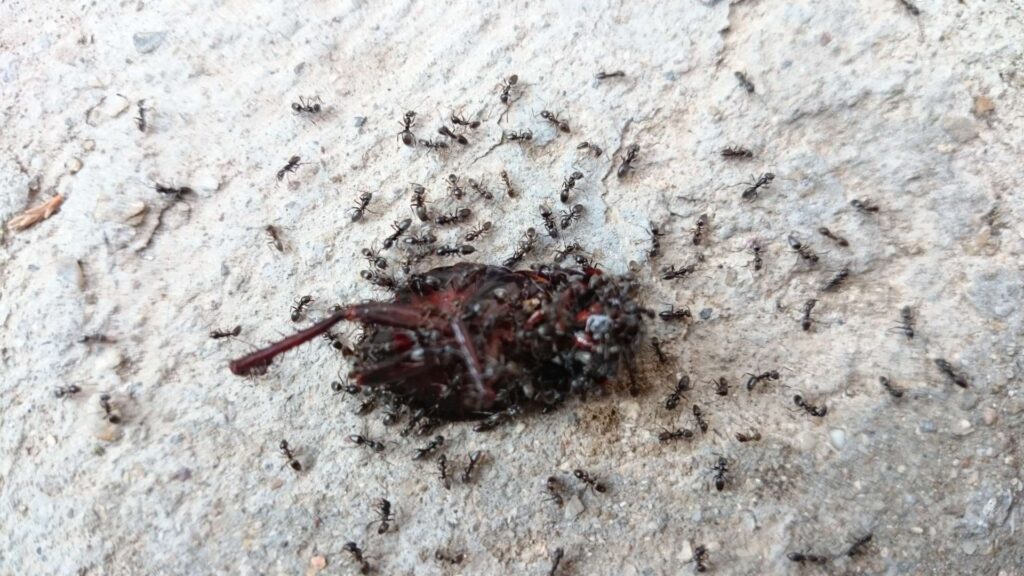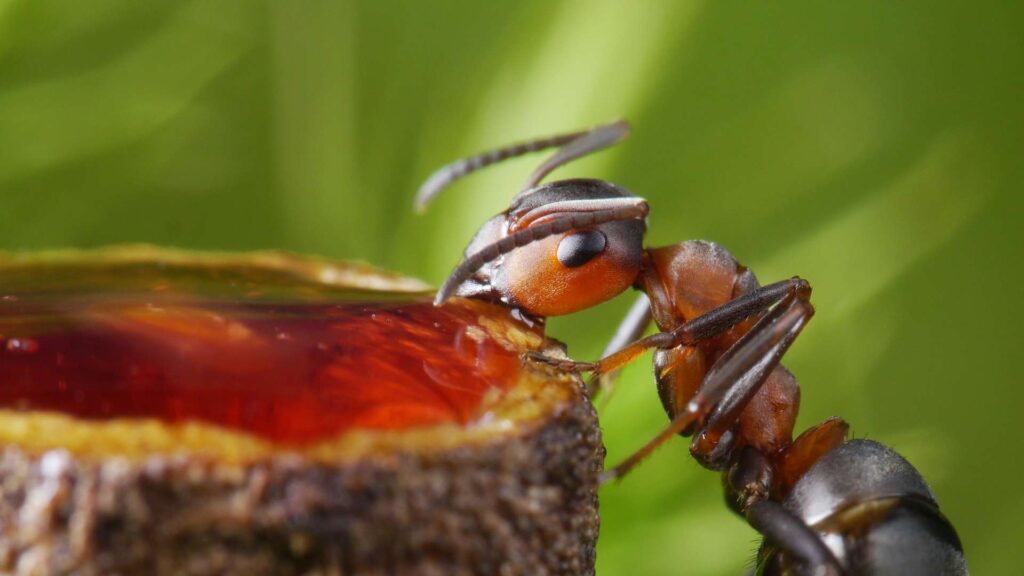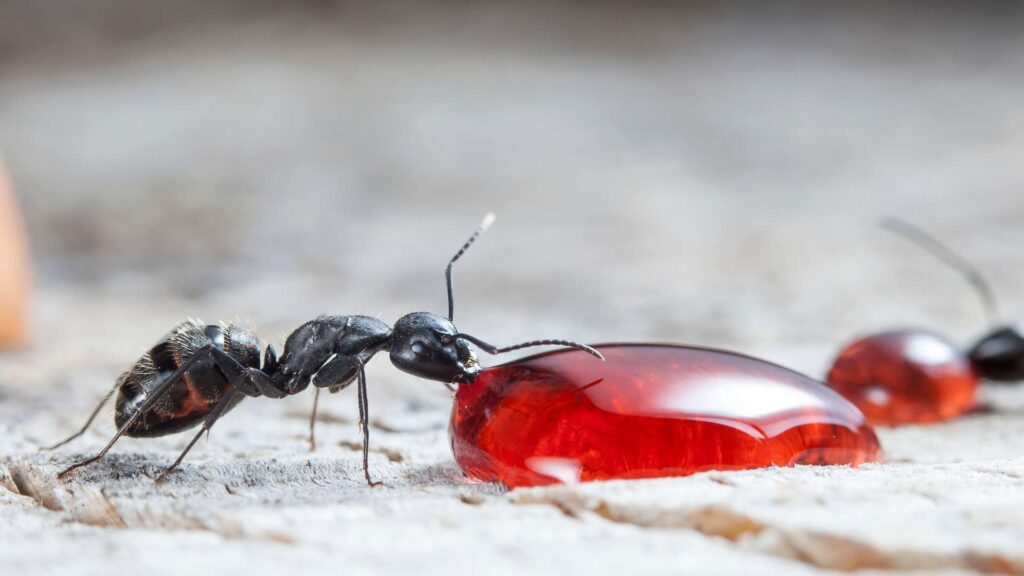Ants are some of the most resourceful creatures on Earth, constantly foraging and adapting to their environment. If you’ve ever wondered why ants seem drawn to your spilled soda or a forgotten crumb, this article uncovers the mystery behind their favorite foods.
By understanding what ants eat and why, you can better prevent infestations and marvel at their fascinating behavior. Let’s dig into the world of ants and their eating habits.
What Do Ants Eat? Understanding Their Diet
Ants are omnivores, which means they eat both plant- and animal-based foods. Their diets are incredibly diverse and depend on their species, environment, and nutritional needs. Some ants act as scavengers, while others are predators or farmers.
Ants’ role in the ecosystem is vital—they recycle nutrients, control pest populations, and even help plants grow by spreading seeds. Their food preferences not only sustain their colonies but also maintain ecological balance.
What Is an Ant’s Favorite Food?
Ants are highly adaptable, and while they don’t have a singular favorite food, they are drawn to three main categories of nutrients: sugars, proteins, and fats.
- Sugars: These provide ants with the quick energy they need to scout, forage, and work tirelessly. Foods like nectar, honey, and fruit juices are irresistible to many species.
- Proteins: Essential for colony growth, protein is especially important for larvae. Ants often hunt insects, feed on meat scraps, or gather protein-rich substances to fulfill this need.
- Fats: Greasy or oily foods attract ants because fats are a dense source of energy. Items like butter, chips, or oily snacks often end up as ant favorites.
So, while the exact food choice depends on the situation, ants are opportunistic eaters who gravitate toward whatever satisfies their current colony needs.
Why Do Ants Love Sugar?
Sugar is like a superfood for ants, offering immediate energy for their busy lives. Foraging ants communicate the location of sugary foods through pheromone trails, allowing others to join the feast. From spilled soda to ripe fruit, anything sugary can quickly attract a swarm of ants.
Do Ants Prefer Protein at Certain Times?
Yes, protein is crucial during specific periods, such as when the colony is growing. Larvae depend on protein for development, so ants will hunt for insects or scavenge protein-rich foods like pet food or meat during these times.
Factors That Influence Ants’ Food Preferences
Ants eating habits vary based on several factors:
- Species Type: Sugar ants prefer sweet foods, while carpenter ants may favor protein and fats.
- Environment: The availability of food sources and seasonal changes affect what ants consume.
- Colony Needs: Whether it’s energy, growth, or storage, the nutritional needs of the colony dictate food choices.
Understanding these factors can help explain why ants show up in certain places and seasons.
Foods That Attract Ants the Most
Ants are drawn to a variety of foods commonly found in homes:
- Sugary foods: Honey, syrup, fruits, and soda spills
- Protein sources: Meat scraps, pet food, and nuts
- Greasy or fatty foods: Butter, chips, and oils
This is why a seemingly small crumb or drop of juice can quickly lead to an ant invasion in your kitchen.
How Ants Find Their Favorite Foods
Ants are excellent foragers, using chemical signals called pheromones to guide each other to food. Once a scout ant discovers a food source, it lays a trail for others to follow. Their teamwork ensures that they can gather even the smallest food particles efficiently.
Species Spotlight: Unique Food Preferences of Different Ants
- Leafcutter Ants: They cut leaves to cultivate fungus, which serves as their primary food source.
- Fire Ants: Known for their aggression, fire ants prefer protein from insects or small animals.
- Pharaoh Ants: These ants are notorious for invading homes, often seeking greasy foods.
Different species have specialized diets, making them fascinating to observe but challenging to control.
Why Understanding Ants’ Food Preferences Matters
Understanding what ants eat can help you:
- Prevent infestations: Remove the foods that attract ants to your home.
- Control pests effectively: Use food preferences to bait ants during ant pest control efforts.
- Appreciate nature: Gain insights into how ants contribute to the ecosystem.
Conclusion: Ants and Their Varied Appetites
Ants’ favorite foods—sugars, proteins, and fats—are driven by their adaptability and colony needs. Whether it’s a drop of juice or a forgotten snack, ants can quickly turn these into a feast for their colony. By understanding their food preferences, you can take steps to protect your home while respecting their role in nature.
If ants are becoming a nuisance, start by eliminating the foods they’re most drawn to. Clean up spills, store food properly, and seal entry points. With a little effort, you can keep these tiny foragers at bay and reclaim your space.


